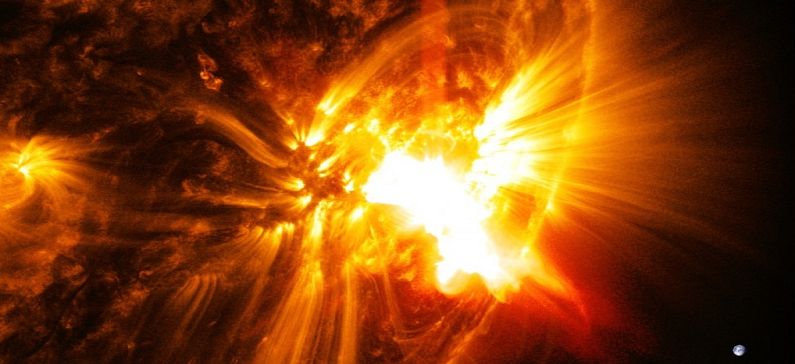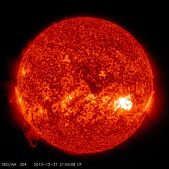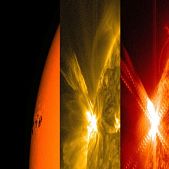
Greek coordinator in the space weather prediction project
Weather in space can be quiet or agitated just like weather on Earth. There are winds, clouds, and storms. However, they are very different from those on Earth. In space, winds, clouds, and storms don’t consist of air and water droplets, but of tiny, super-fast charged particles, plasma (matter hotter than gas), and magnetic fields. They come from the Sun and spread out through the solar system in spiral-shaped waves.
FLARECAST is a European research project, led by a Greek scientist, aiming to develop a fully automated solar-flare forecasting system with an unmatched accuracy compared to existing facilities. The FLARECAST prediction system will be one of the first fully automated forecasting systems for solar-flare prediction. It will extract the physical properties of solar active regions in near real-time and compare them to data from previous solar activity. The online tool will be of use to space-weather forecasters and researchers in Europe and around the world.
Project Coordinator is Dr. Manolis K. Georgoulis. He works as a senior researcher at the Research Center for Astronomy and Applied Mathematics (RCAAM) of the Academy of Athens.
Since the dawn of the space age, we have become increasingly dependent on a reliable forecasting system for solar activity, says FLARECAST project coordinator Dr. Manolis K. Georgoulis. He is one of the few solar physicists worldwide specialized in flare prediction.













